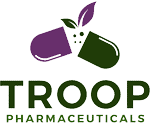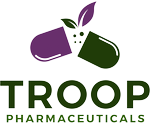Chromium is a mineral. It is called an “essential trace element” because very small amounts of chromium are necessary for human health. There are two forms of chromium. Trivalent chromium is found in foods and supplements and is safe for humans. The other form, hexavalent chromium, is a known toxin that can cause skin problems and lung cancer. Only trivalent chromium is discussed. Chromium is an essential trace mineral that can improve insulin sensitivity and enhance protein, carbohydrate, and lipid metabolism. It is a metallic element that people need in very small quantities. Chromium supplements may enhance muscle mass, weight loss, and glucose control.
The Adequate Intake (AI) of chromium for ages 9 years and above ranges from 21 to 25 micrograms (mcg) per day for females and 25 to 35 mcg per day for men.
For infants and children, the recommended intake is:
- Up to 6 months: 0.2 mcg per day
- From 7 to 12 months: 5.5 mcg per day
- From 1 to 3 years: 11 mcg per day
- From 4 to 8 years: 15 mcg per day
Why do people take chromium?
Some studies have shown that chromium supplements may be helpful for people with type 2 diabetes and insulin resistance (prediabetes). There’s good evidence that chromium can lower glucose levels and improve insulin sensitivity, although not all studies have shown a benefit. It may be that chromium works better if someone is chromium deficient, which is usually only seen if a person has poor overall nutrition. Other studies have also found that chromium may help with polycystic ovary syndrome (PCOS), which is linked to insulin resistance.
Chromium supplements have also been studied for their effects on cholesterol, heart disease risk, psychological disorders, Parkinson’s disease, and other conditions. However, the study results have been contradictory or unclear.
Some people use chromium supplements to build muscle or trigger weight loss. Some chromium studies have shown these benefits, but others have not.
Sources of chromium
Foods high in chromium are broccoli, liver and brewer’s yeast, Potatoes, whole grains, seafood, and meats also contain chromium.
Others are:
1. Grape juice: 1 cup contains 8 mcg
2. Turkey breast: 3 ounces contains 2 mcg
3. English muffin: one whole wheat muffin contains 4 mcg
4. Potatoes, mashed: 1 cup contains 3 mcg
5. Green beans: 1 cup contains 2 mcg
6. Red wine: 5 ounces contains between 1 and 13 mcg
Chromium also comes in supplement.
Written by Sarah Amah.




